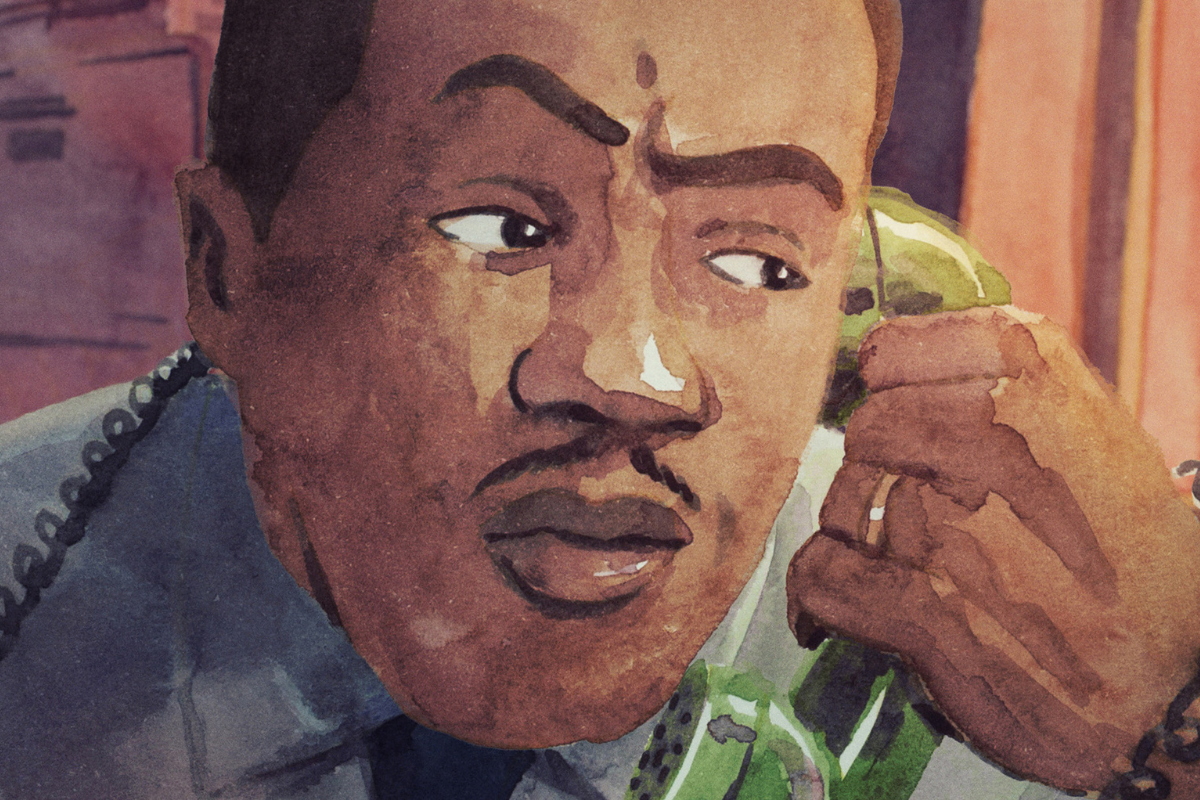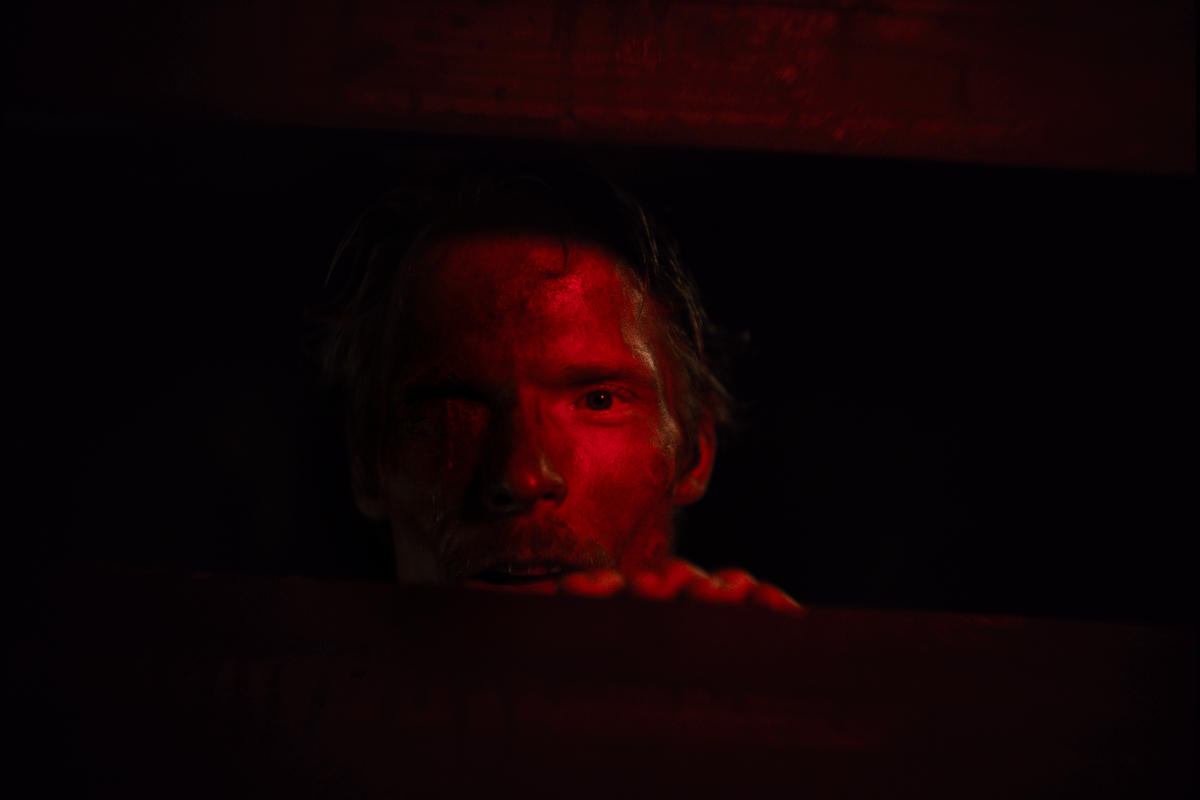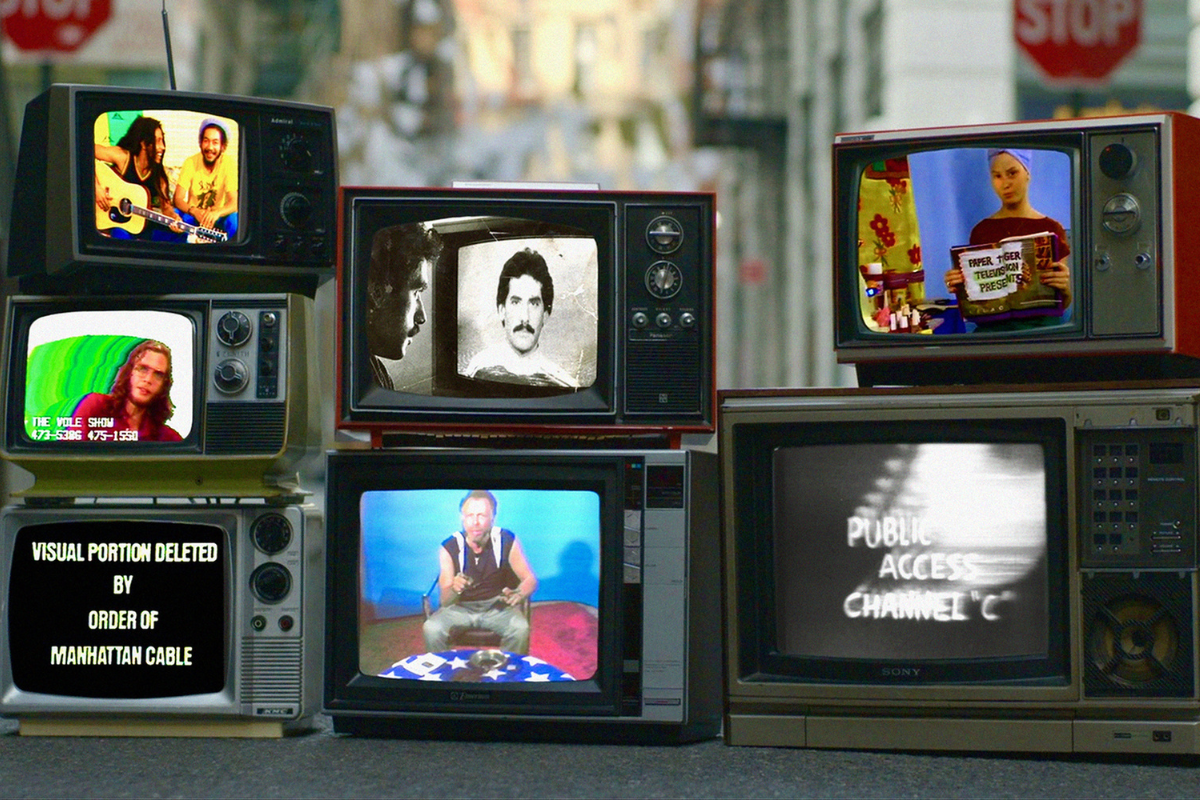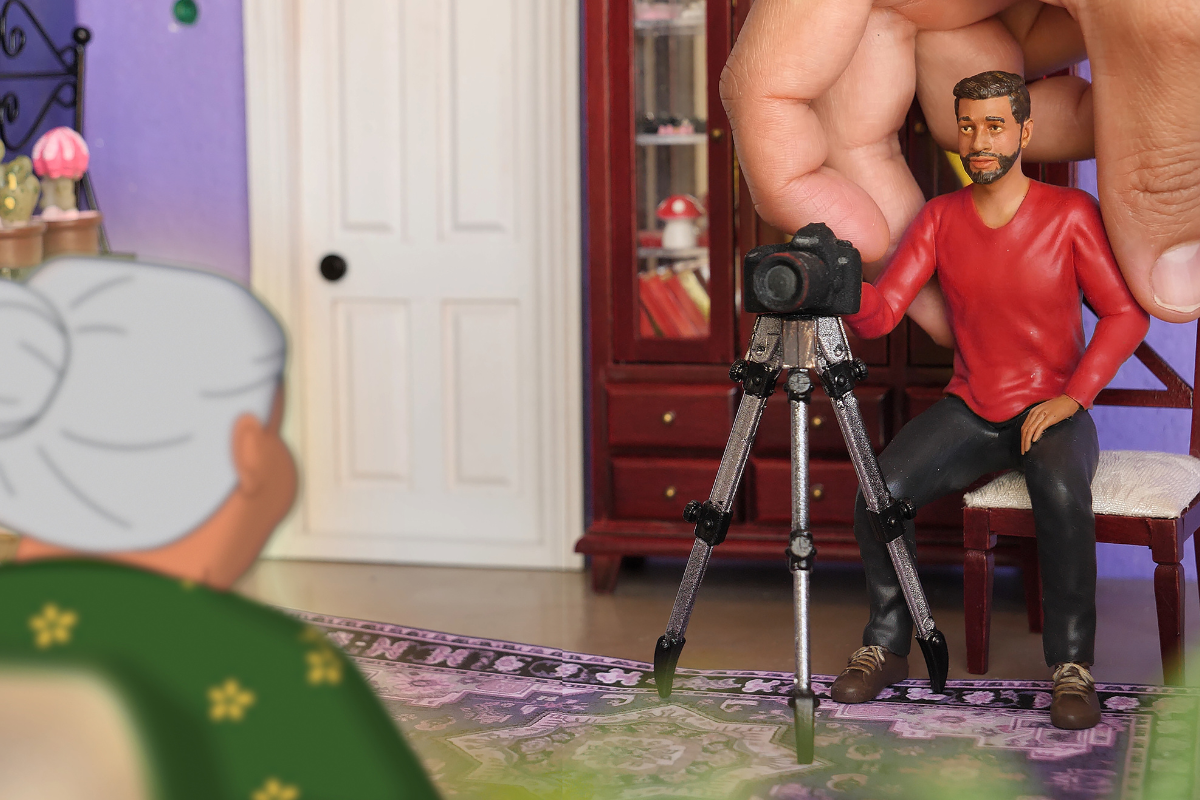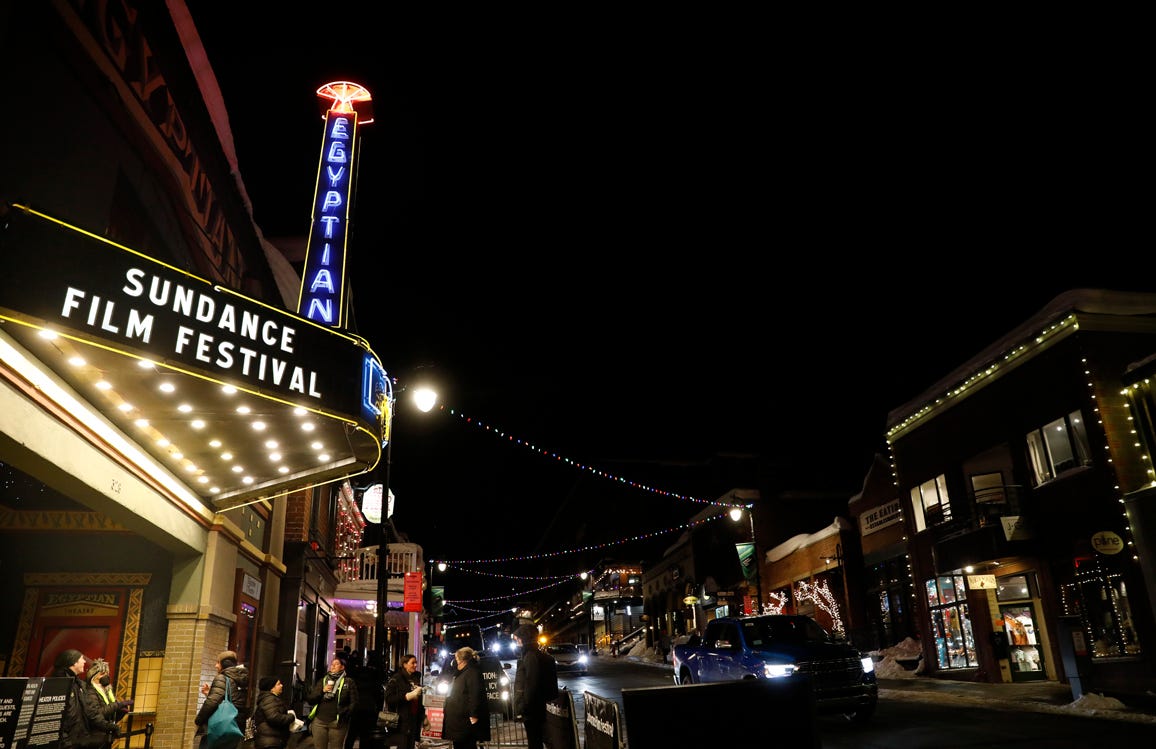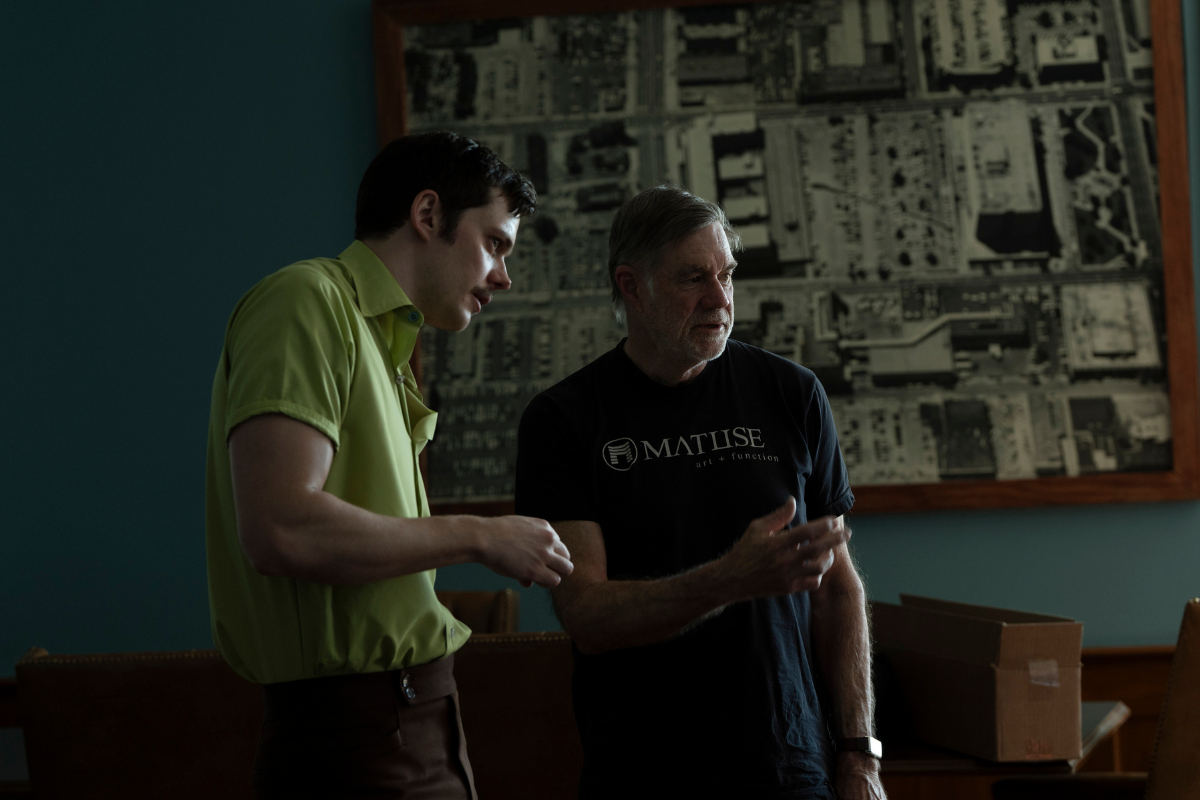INDIE SPOTLIGHT: Interview with ‘Sympathy for the Devil’ Director Yuval Adler
Yuval Adler shares the journey of optioning the script, his creative collaboration with Nic Cage, and how directing heavily influences his writing.
After being forced to drive a mysterious passenger at gunpoint, a man finds himself in a high-stakes game of cat and mouse where it becomes clear that not everything is as it seems.
It goes without saying that you'll never be disappointed by a film starring the talents of Nic Cage. And as his career carries on through independent films, his approach to how he carries a character from page to screen is cradled with great fragility and care.
His latest film, helmed by Yuval Adler, takes it up another notch in performance and stakes. Yuval and screenwriter Luke Paradise leave no stone unturned with deliberate subtle nuances through character work, dialogue, and tone. Yuval is primarily a writer/director, and just like how Nic Cage approaches his characters, Yuval approaches his films with great finesse and adoration of what is on the page to how it's visually translated - the devil is in the details.
Yuval Adler recently spoke with Script about the journey of optioning the script from screenwriter Luke Paradise to the quick turnaround into production, his creative collaboration with Nic Cage, his approach to working within the confines of a contained thriller, and how production and directing heavily influence his writing.
This interview has been edited for content and clarity.
Sadie Dean: I'd love to hear about the journey of how this project came to be and your connection to the material as a director?
Yuval Adler: Well, I'm actually a writer-director, primarily. Most of the films I wrote, that's why I'm happy to talk with Script Magazine. There was a period when I did Bethlehem after…that phase, the new directors come and they have an agent, and they send them a million scripts, and they're all horrible. Like, really?! [laughs] And so I did that. But there were two scripts that I liked, and both of them I didn't get. They were like, ‘Oh, why don't you do spy film again, you Israeli guy?’ And I didn't get them.
One of them was a horror film. I'm now friends with the writer, that they made. And one of them was this. And every two, or three years, I noticed that this film is not made. So, I would just email the producers like, ‘Hey, what's up with Sympathy?’ And they'll be like, ‘Oh, yeah, it's in turn around.’ So, every two, three years, literally, like 2015, 2017, and then in 2021…and then they're like, ‘Oh, we lost the rights. The options went back to the writer.’
How Michael Tennant Took His Shot with Indie Film ‘Pretty Problems’ and How it Paid Off in Dividends
So, I contacted the writer, and I convinced him to sell it to me, I said, ‘Look, producers, they want to make money, I want to make the film.’ I'm a director, and I gave him that spiel. And I had no idea how I was gonna make it. I convinced him to sell it to me. And I actually bought a right to a script, which I never did. And that was like, in 2020, end of 2021. Like, really recently, I bought the right and I bought for one year, which my manager was like, ‘What are you crazy?’
But then he sent it to a producer, Alex Lebovici, he really loved it. And Alex Lebovici had a call with WME and WME told him incidentally, Joel [Kinnaman] is available in the summer because another project died. ‘What do you have?’ ‘Oh, I have this script with Yuval.’ ‘Oh, Joel likes Yuval because they made The Secrets We Keep. Let me read it.’ And suddenly, Joel was interested and we had a block in the summer he was available. And that's how the film was super-fast. Like a miracle. It never happens like that.
Sadie: That's incredible.
Yuval: Yes, it was absolutely. I was already like done with this Hollywood stuff. I was like, I'm gonna write stuff in Europe. I can't deal with these people. They're so crazy. I was like a gambler who before he leaves the casino puts a chip on the number and suddenly the number comes out. You know what I mean? That's what happened.
Sadie: I love that you just had such a connection with this script and this writer that you just kept going back. You never know what's going to happen. Did you have any additional collaboration or discussions with Luke [Paradise] after you bought the rights?
Yuval: I'm in touch with Luke and we're trying to do another thing - but Luke was very happy, like many of us, you know, it was like, suddenly this film looks like it's gonna be made. He wasn't going to eff with anything, right? I constantly sent him stuff and I said, ‘What do you think about that? We're changing that or Nic wants to do this. It was written for New York in the snow. I was like ‘Dude, that's not gonna happen. Let's move it to Vegas.’ That kind of stuff. And I constantly wanted him to be involved. He was like, so shocked…that's related to the strike and writers are dealt like shit in Hollywood. You know? They don't even think about the writer. As a writer, I was constantly trying to have him in. He came to the set; he even did a cameo in the film.
But for me the writing…I'm a writer, that's fundamentally what I do. I mean directing you're lucky to do every few years. Writing is what I do every morning. I wake up at 5:30 am and I write till 11. It's a trick I learned from Stephen King. I get up and I write daily – every day - Saturday, Sunday, every day.
Just Make It with What You Have: A Conversation with 'Foil' Indie Filmmakers Zach Green and Devin O'Rourke
Sadie: In terms of setting both the tone aesthetically and emotionally with the characters and having talents like Nic and Joel behind these characters, and these subtle nuances that you get out of these performances that heighten the tensions of this thriller but also not revealing the truth – what was your approach as a director and working with these guys?
Yuval: Nick is very fanatic, Nic is like five six weeks prior to shooting he's 100% in the film - that's what he does. You know other actors will be on vacation, ‘I'll see you a week before production.’ No, in five weeks he's at home all the time poring over the script sending me texts, ‘Why are we saying this line? Can this line be this? Look at this interview between Truman Capote and Tennessee Williams, look how they talk. Isn't it interesting? Look at the jacket he's wearing…’ Like all the time.
And the constant input, and then you kind of channel that somehow in then rehearsal with Joel and Nick. And watching it, watching them. And then you know that there's something. Always when I write - I never studied writing or film, but I studied acting, I'm not a good actor, but I studied acting at Strasburg for a couple of years. And it was like writers and actors do the same thing. Right? They think of the situation from the character's point of view, they invent biographies, so I was very sensitive to what's happening between them as actors. Also, typically Nic came with big stuff and how Joel kind of contains it, and reacts to it throughout the film, until the end.
And then a lot of it happens in the editing, which is another space where you rewrite the film, basically, especially in a film like this, where it's a lot of two cameras or two guys, and I can switch lines, create suddenly a moment of silence. I can literally create stuff in the editing. It's another rewrite. And how much you reveal was a big question, actually, in the original script, we didn't reveal anything until like, minute 40. And then we said, ‘You know what, it's too late. We need to give some hints at minute 20 at 25.’ And we changed with the ADR, we changed lines slightly, to give it a bit of an ominous ‘wait a minute this is not just some random attack,’ but do it when it's 17 as opposed to 26. So that was another process.
Sadie: The devil is in the details. What I love so much about the story and just the character work is that they are opposites of each, but we don't know that until the end. And you do end up having sympathy for the devil.
Yuval: Yes.
Sadie: The visual approach and your collaboration with your DP Steven Holleran, in this being a very contained thriller, I want to say you maybe had four or five locations --
Yuval: Exactly.
Sadie: …but most being in the car or around the car, how were you two able to get what you got in terms of these shot choices and two characters?
Yuval: Well, the fact that there are so few locations like the car, which is actually less than you think it's like 35%, it's like a third, slightly more than a third; then there's outside Vegas; there's a big scene inside the diner; and it's almost a third with the outside scene with all the fire. So, this big diner is red - fire is fire. Dark outside is black in Vegas. Car is lights - lights projected. So, each one has its own look. In a film, typically you have 10,000 locations and to make it unified is hard. Here you have four locations that are distinct, so it's actually a privilege that we could focus on those locations and give each one a look.
And we went with Nic's red thing with the jacket and the hair. And we wanted kind of the strong primary colors and play the black, red, cutting it with blue. And a lot of backlit lighting into the camera, flares - and the fact that we shot in an LED studio gave us a lot of texture, the colors…you could never shoot it outside at the speed that we shot. We shot this whole film in 20 days.
Sadie: That's incredible. You did a lot in 20 days. Did you have any big learning curves that you’ll take away from this film and carry with you onto your next project?
Yuval: Ah learning, I don't know, it's more actually about the writing. I mean, again, I'm writing now a couple of projects. And it's more I think what I get from directing films and working with actors is actually influenced my writing. I know more what will play, like, why is this scene there? What do we want from that scene already on the script level. Always ask, ‘Why not cut this scene? I have to know everything, why?’ You have better answers to these questions after making a film. And seeing how scenes like and sometimes quiet scenes, it doesn't have to be like, ‘Oh my God, this scene is a scene where somebody walks from A to B,’ and silence suddenly is exactly what you want. You want connection.
I think that's the great thing about being a writer-director is that you actually see how this thing translates. You also see it as a writer when you see the movie, but you see how the actors react to a scene, what they find in the scene, especially when you work with great actors like Nic and Joel, you actually learn from what they pick up in the scene - what triggers them in a good way, you know?
RLJE Films will release SYMPATHY FOR THE DEVIL in theaters on July 28, 2023.


